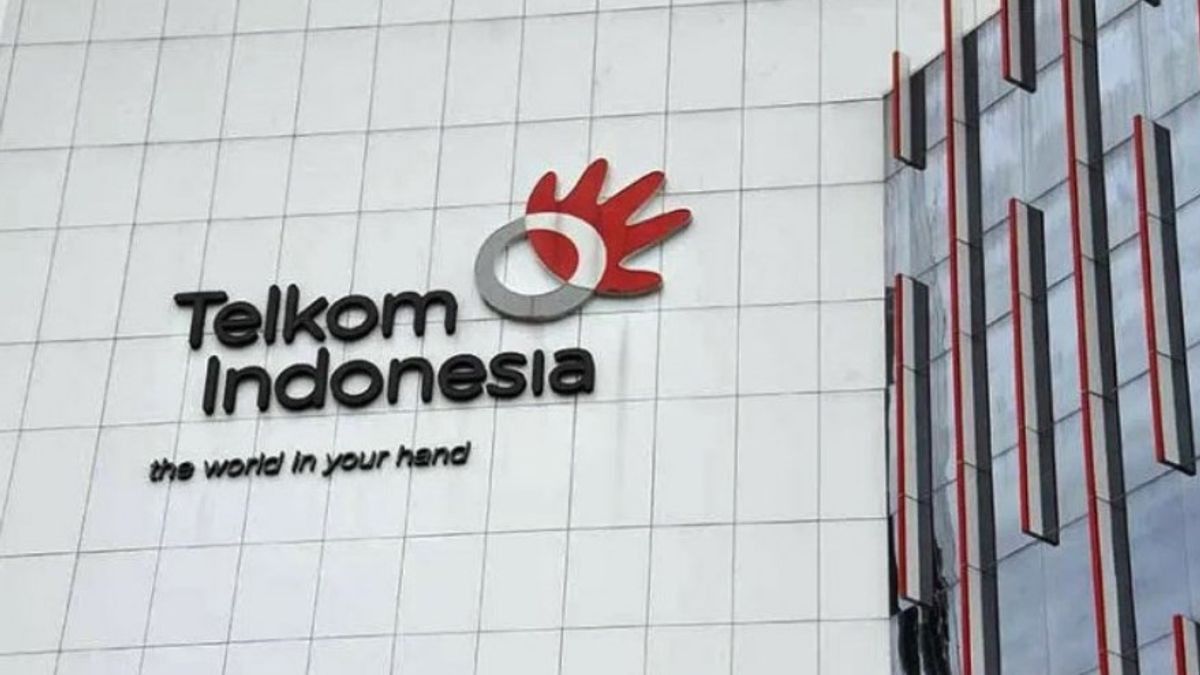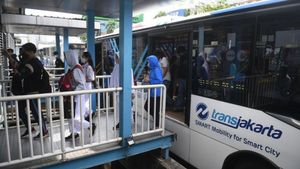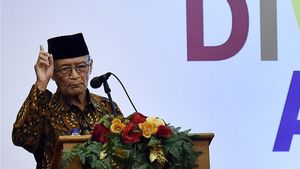JAKARTA - The problem with IndiHome's internet network disruption last Sunday had a long tail. Netizens' emotions have not been extinguished. This time many people demanded compensation for the disturbance during those few days. Is compensation alone enough?
At least the internet disruption of IndiHome and the Telkom group lasted for three days. This Wednesday morning, customers were still complaining about disturbances until "Telkomsel" was again trending on Twitter.
IndiHome disturbances began to hit since Sunday, September 19 at around half past six in the afternoon. Until Monday morning, it was not the internet speed that rose but the emotions of the netizens.
Previously, it was mentioned that the IndiHome and Telkom network disturbances occurred due to a disturbance in the Jasuka (Java, Sumatra and Kalimantan) sea cable communication system for the Batam-Pontianak section. "We will immediately prepare repairs so that the infrastructure can return to normal function as soon as possible," said Telkom's Vice President of Corporate Communication, Pujo Pramono in a written statement.
The delay in IndiHome's internet service is like a boycott of community activities. Starting from online meeting activities, learning for school students who are currently undergoing the Mid-Semester Examination, to the Selection of Civil Servant Field Competencies. As a result, the emotions of IndiHome customers are difficult to extinguish and to this day there are still many people who complain about this problem.

Several netizens who are still complaining to this day have questioned the existence of compensation they received for this incident. The owner of the Twitter account @mahendrapras for example. He admitted that he couldn't understand that customers had to understand the problem of interference, even though he said IndiHome never wanted to understand that customers paid late.
"Dear (admin) @IndiHomeCare for customers who are affected by disruption, can they receive compensation? If we are asked to understand about this disturbance, in my experience @IndiHomeCare never wants to understand why I paid late (immediately isolated)," he wrote.
Meanwhile, @irwan_sowikromo urges IndiHome to give satisfaction to consumers, and think about the losses of the affected community, not only think about profits. Because in line with @mahendrapras, IndiHome does not tolerate late payments even if it is only a day.
"It's been a day and it hasn't been done yet, please give satisfaction to consumers. Don't just think about profits, but don't think about the losses to the community (consumers), when you pay a day late, you're isolated.
No matter how big the loss suffered by the customer due to the IndiHome network, it is priceless. From among employees, for example, in the midst of the COVID-19 pandemic, how many thousand people are working from home? Not many students rely on the internet for distance learning (PJJ).
For example, the owner of the account @jyannijohn, whose learning was interrupted because of this bad connection. "It's really hard for me to be online, sorry, where else is the test from yesterday, sir. I paid a lot of money, why is it like this."
Apart from students, the working class also suffered a lot of losses. The owner of the @ErickoRuly account, for example, admitted that it was difficult to work at home properly.
"I've increased the Mbps quota and said it wouldn't be slow anymore. It turns out to be slow all the time. The speed goes up and down when it's used for meetings... The quality of the service, sir, it's hard to want to WFH properly," he wrote. So if this is the case, is the customer obliged to get compensation?

When referring to the Terms and Conditions (T&C) contained in the indihome.co.id page, actually the company, in this case Telkom, is obliged to compensate customers "if the IndiHome Service Level Guarantee is not fulfilled or it is proven that there is an error in billing." And in the Customer Rights section, users are also required to get compensation according to these provisions.
However, there are separate points that limit Telkom's responsibility to its own customers. In the IndiHome S&C, it is stated: TELKOM is released from responsibility for payment of compensation or losses borne by the CUSTOMER, either direct or indirect losses as a result of the functioning or non-functioning of the IndiHome Service connection, because:
Damage or interruption of the IndiHome Service due to the CUSTOMER's error or negligence; Change of IndiHome Network, change of number, or TELKOM's telecommunication network; IndiHome Network interconnection failure with other telecommunication providers; Billing errors resulting from access/use of IndiHome Services provided by other telecommunication service providers outside TELKOM; Damage due to events/events beyond the normal control limits of TELKOM (Force Majeure).In addition, the Twitter account @indihomecare also provides answers related to compensation questions from users. "Compensation will be given if network maintenance occurs more than 3x24 hours," wrote @indihomecare.
To find out more about compensation from IndiHome, VOI has contacted PT Telkom. However, as of this writing, there has been no answer.
Hi buddy. Sorry for the inconvenience. But now the network maintenance has been completed, please try again the network connection. Then compensation will be given if network maintenance occurs more than 3x24 hours. -Meika
— IndiHomeCare (@IndiHomeCare) September 20, 2021
Meanwhile, in the eyes of the Daily Executive of the Indonesian Consumers Foundation (YLKI) Agus Suyatno, the rules regarding the provision of compensation from IndiHome are still dark. "This is indeed a clear rule that does not exist in IndiHome because PT Telkom itself does not have self-regulation. For that I encourage all SOEs to have a standard of compensation settlement," he told VOI.
Agus said 3x24 hours is not a short time and of course there are many things that consumers cannot do during that time. "This is the basic question whether IndiHome or PT Telkom make such a statement."
Even though Agus said, IndiHome disturbances like this have happened twice this year. "Then consumers have the right to get compensation because in accordance with what is in the Consumer Protection Act that consumers are entitled to get services in accordance with the promises that have been given to consumers by business actors."
Compensation mechanismBy telephone, Agus explained how the compensation mechanism should be. He said, compensation could be given on the next bill.
"For example, there is a reduction in costs, or an exemption from bills for the next month, when there is a disturbance that the business actor cannot prove that it is beyond human capabilities, such as a natural disaster (force majeure).
If they can't prove it, business actors, in this case Telkom and IndiHome, are obliged to provide compensation," explained Agus.
Agus said this kind of compensation is common. He gave the example of PT PLN, one of the state-owned enterprises that has independent regulations regarding the provision of compensation.
"When there is a blackout within a few hours in one month, consumers receive compensation in the form of reduced bills in the following month for postpaid ones, while prepaid ones will be included in the credits purchased at the next purchase," said Agus.
Meanwhile, regarding the nominal amount of compensation, Agus said, it has its own calculation. What is clear, said Agus, no matter how small the disruption from a service, is still detrimental to consumers.
As explained by Agus, consumer losses are divided into two: direct and indirect. Direct losses, for example, IndiHome consumers cannot get telecommunication or internet services properly.
Meanwhile, indirect nominal losses are much larger. "For example, when a consumer is disturbed, they should have a Zoom meeting to discuss business but it can't be done. Either it is postponed or canceled, this is something that is detrimental. It has immeasurable value, it will be very big for consumers."
Therefore, said Agus, compensation alone is not enough. According to him, the management should apologize publicly.
"In Japan, they bow down for 15 minutes, now I think that in Indonesia it is necessary to do things other than compensation, internal management audits, and open apologies. That they failed to provide good service. Whether it's in the form of bowing for five minutes as an acknowledgment that they were wrong and failed to serve the best for consumers," he concluded.
*Read other information about TECHNOLOGY or read other interesting articles from Ramdan Febrian Arifin.
Other BERNASThe English, Chinese, Japanese, Arabic, and French versions are automatically generated by the AI. So there may still be inaccuracies in translating, please always see Indonesian as our main language. (system supported by DigitalSiber.id)









